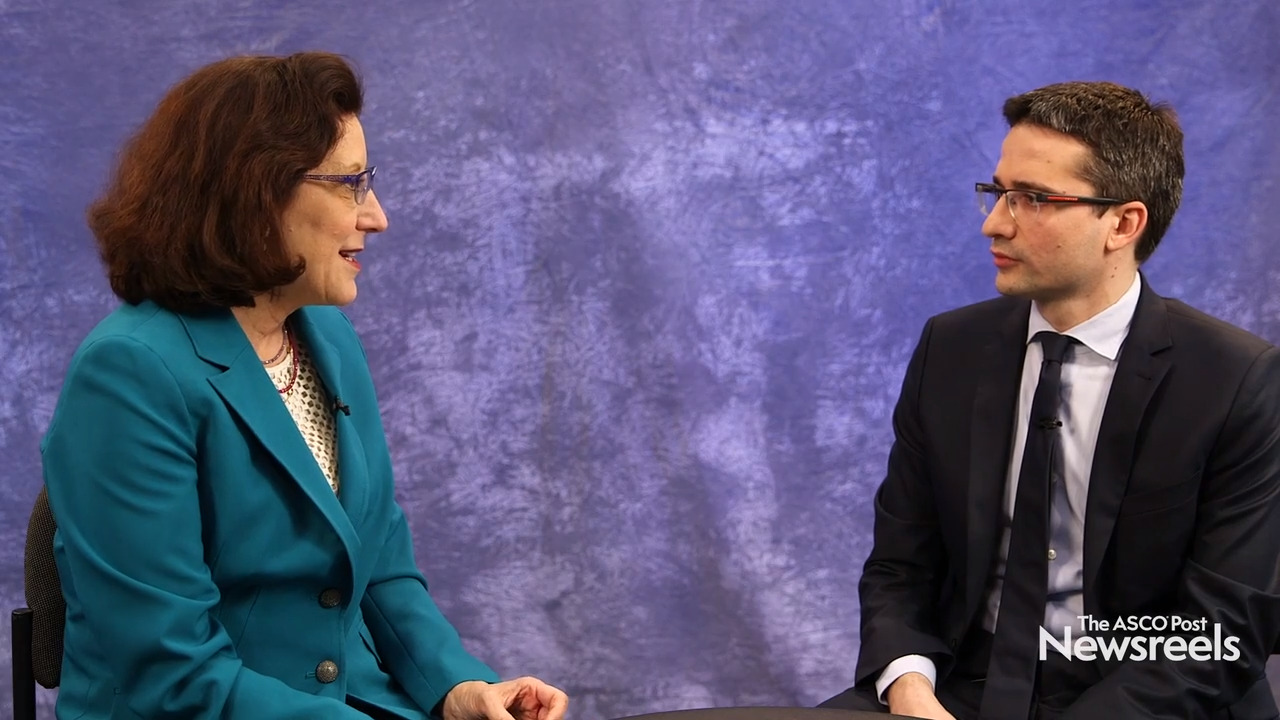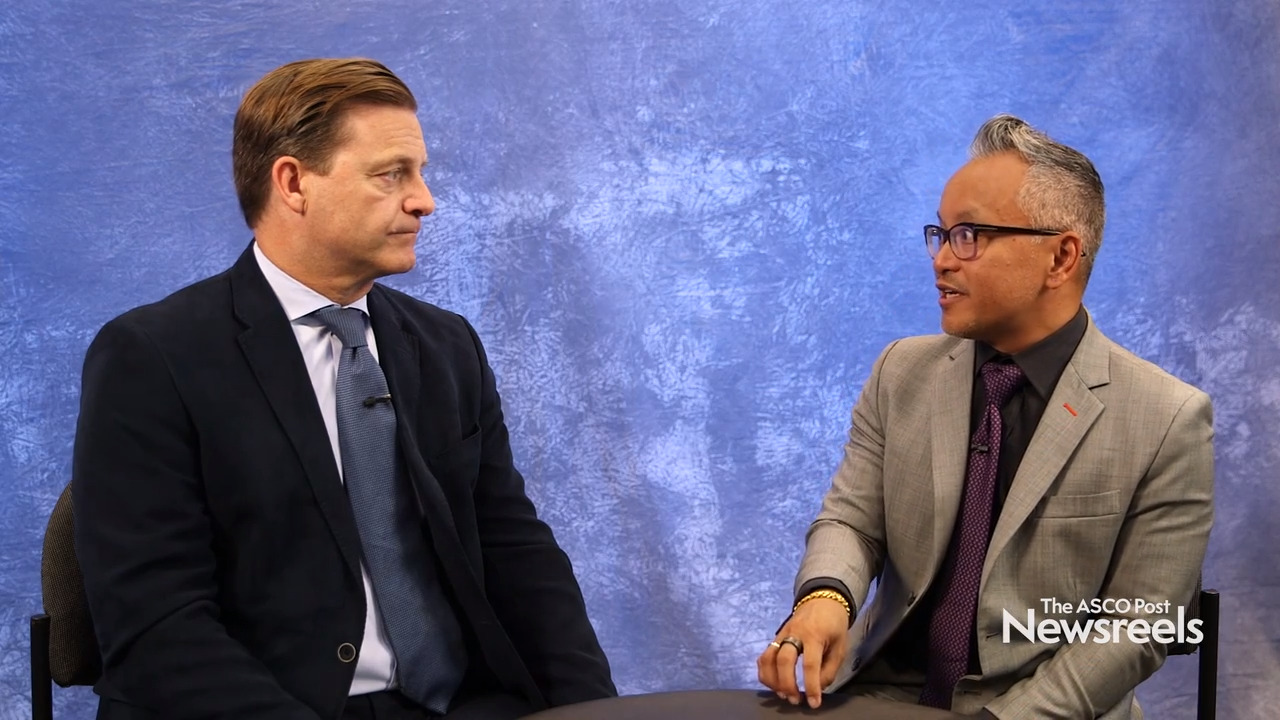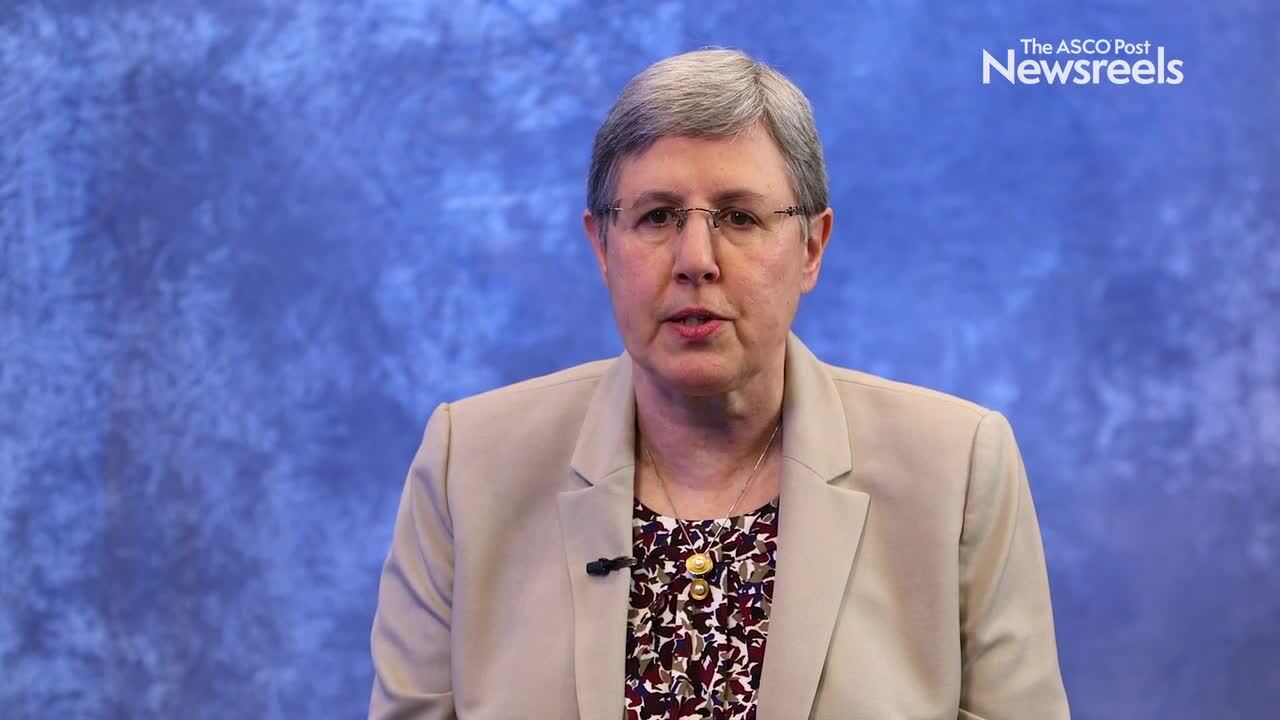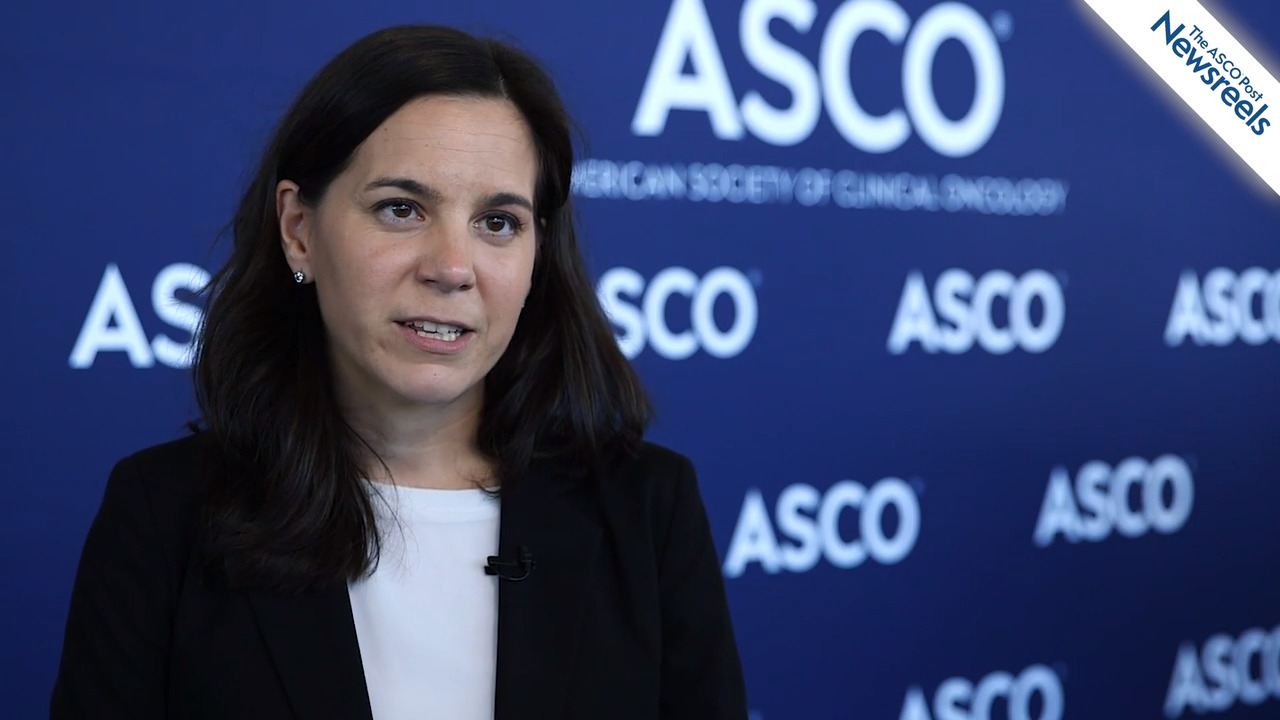Alok A. Khorana, MD, and Hedy L. Kindler, MD, on Metastatic Pancreatic Cancer: POLO Trial on Olaparib as Maintenance Therapy
2019 ASCO Annual Meeting
Alok A. Khorana, MD, of the Cleveland Clinic, and Hedy L. Kindler, MD, of The University of Chicago, discuss phase III findings on olaparib as maintenance treatment following first-line platinum-based chemotherapy in patients with metastatic pancreatic cancer and a germline BRCA mutation (Abstract LBA4).
Matteo Lambertini, MD, PhD, of the University of Genova and Policlinico San Martino Hospital, and Hope S. Rugo, MD, of the University of California, San Francisco, discuss findings from the SOPHIA trial on margetuximab plus chemotherapy vs trastuzumab plus chemotherapy in patients with HER2-positive metastatic breast cancer after prior anti-HER2 therapies (Abstract 1000).
Don S. Dizon, MD, of the Lifespan Cancer Institute, and Matthew A. Powell, MD, of Washington University School of Medicine, discuss phase III findings on paclitaxel plus carboplatin vs paclitaxel plus ifosfamide in chemotherapy-naive patients with stages I to IV, persistent or recurrent carcinosarcoma of the uterus or ovaries (Abstract 5500).
Amy J. Davidoff, PhD, of Yale University School of Public Health, discusses study findings on how expanding access to Medicaid through the Affordable Care Act (ACA) reduced racial disparities among patients with advanced cancer. Before the ACA was implemented in 2014, black patients with cancer were less likely than white patients to receive timely treatment, but in states that did not adopt Medicaid expansion, racial disparities persist (Abstract LBA1).
Angela Lamarca, MD, PhD, of The Christie NHS Foundation Trust and the University of Manchester, discusses phase III findings from a multicenter study of active symptom control alone or active symptom control with oxaliplatin and fluorouracil for patients with locally advanced or metastatic biliary tract cancers previously treated with cisplatin and gemcitabine (Abstract 4003).
Panagiotis A. Konstantinopoulos, MD, PhD, of Dana-Farber Cancer Institute, discusses his phase II study on the response to avelumab in microsatellite-stable and -instable recurrent or persistent endometrial cancer with a polymerase epsilon mutation (Abstract 5502).





